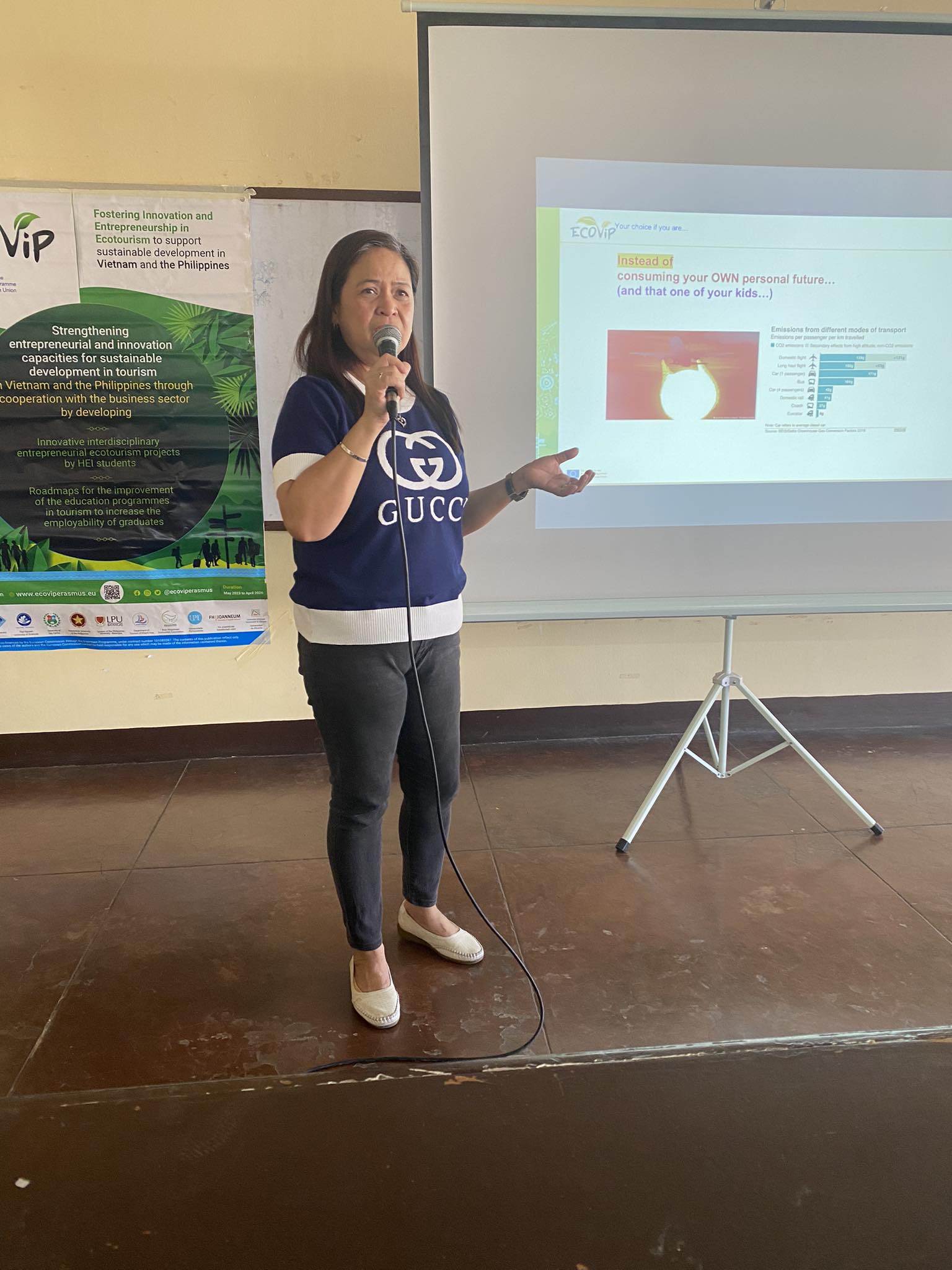
Faculty members from the Polytechnic University of the Philippines (PUP) have returned from a transformative experience at Universidade Portucalense in Porto, Portugal, where they participated in the ECOVIP Training of Trainers 2. Yolanda Montances, Regina Zuniga, and Krupskaya Valila, after their enriching training sessions, have taken the lead in conducting replication workshops back in PUP, focusing on sustainable tourism practices and innovative tourism product development.
The replication workshops aimed to disseminate the knowledge and insights gained from their training in Porto among their peers, colleagues and students at PUP. Drawing from their experiences, the faculty members facilitated discussions and practical exercises centered around sustainable tourism principles and the creation of avatars for tourism products.
Yolanda Montances, an ardent advocate for sustainable tourism, stressed the importance of integrating environmental conservation and community empowerment into tourism initiatives. "Our goal is to create tourism experiences that not only attract visitors but also preserve our natural and cultural heritage," Montances emphasized.
Krupskaya Valila, known for her expertise in communication and marketing, guided participants through the process of creating avatars for tourism products, emphasizing the importance of understanding the target audience's needs and preferences. "By developing avatars, we can better tailor tourism experiences to meet the diverse interests of travelers," Valila explained.

Regina Zuniga, with a background in tourism development, highlighted the significance of stakeholder engagement in sustainable tourism projects. "Local communities play a crucial role in shaping the tourism landscape," Zuniga remarked. "Involving communities in decision-making processes ensures that tourism benefits are distributed equitably and contribute to local development."
The replication workshops culminated in presentations by attendees, who showcased their developed sustainable tourism products and targeted avatars. Through collaborative efforts and innovative thinking, participants demonstrated a commitment to advancing sustainable tourism practices in the Philippines.
"These workshops mark the beginning of a journey towards creating a more sustainable and inclusive tourism industry in our country." Montances shared.
The replication workshops, inspired by the training received in Porto, Portugal, signify a proactive approach by PUP faculty members to drive positive change and innovation in the field of tourism. As educators continue to play a pivotal role in shaping the future of tourism, initiatives like these serve as platforms for knowledge exchange and collaboration, ultimately contributing to the sustainable development of the tourism sector in the Philippines.
*developed by ChatGPT




